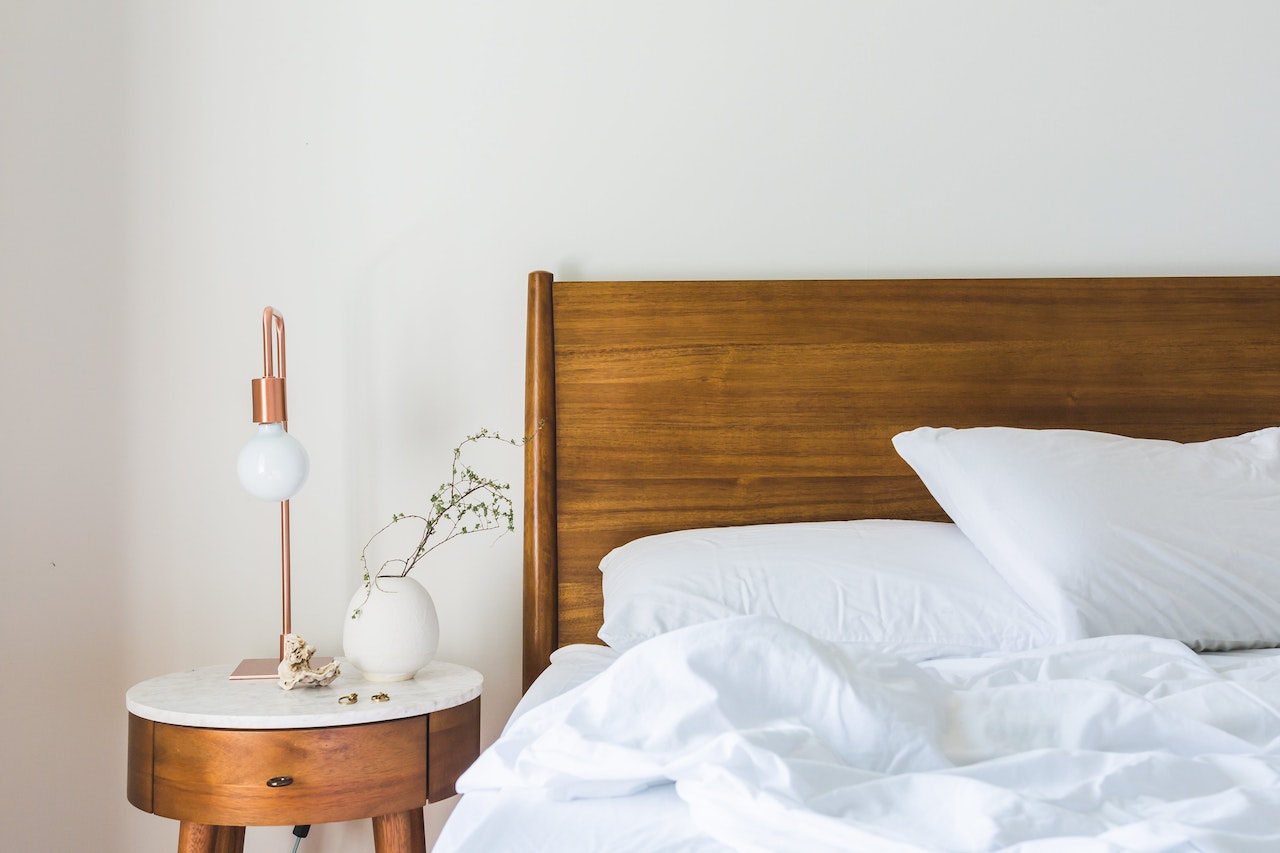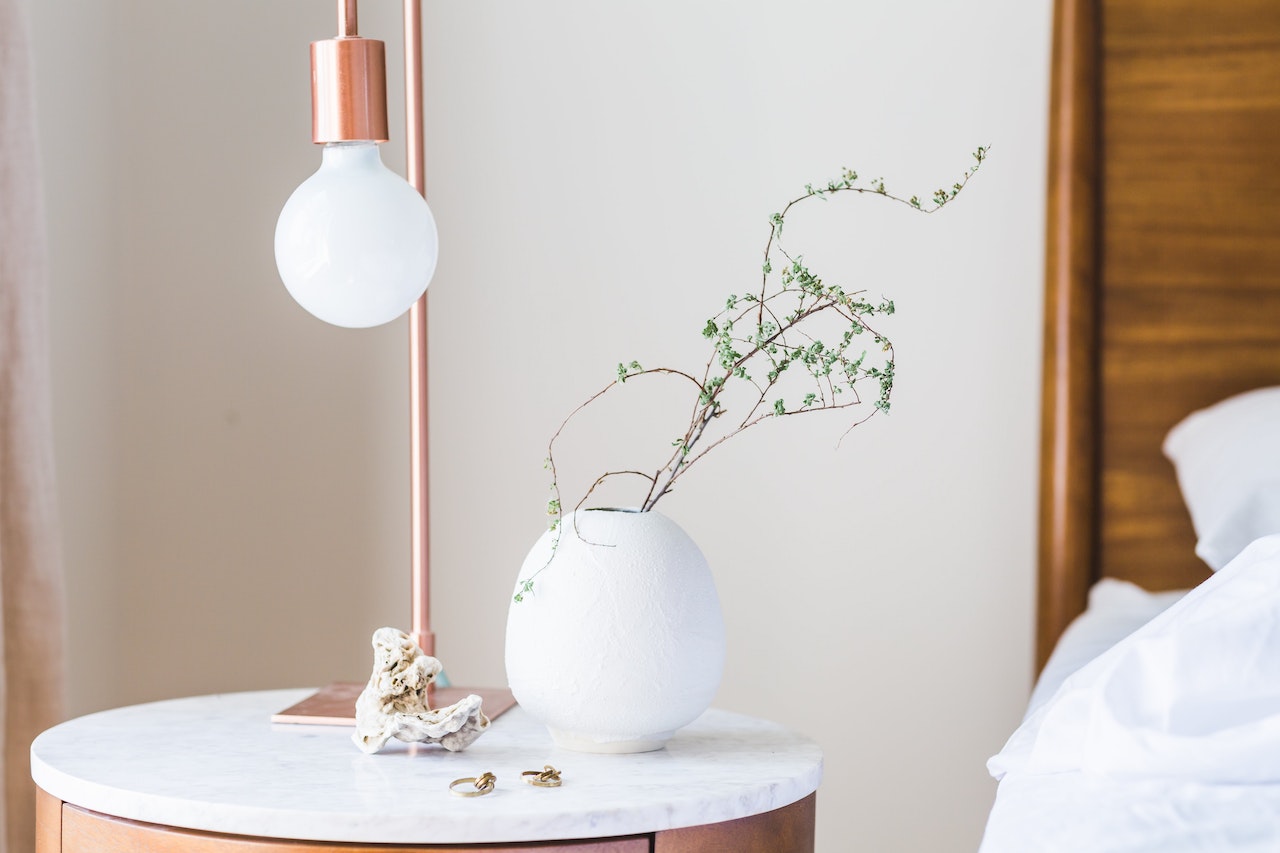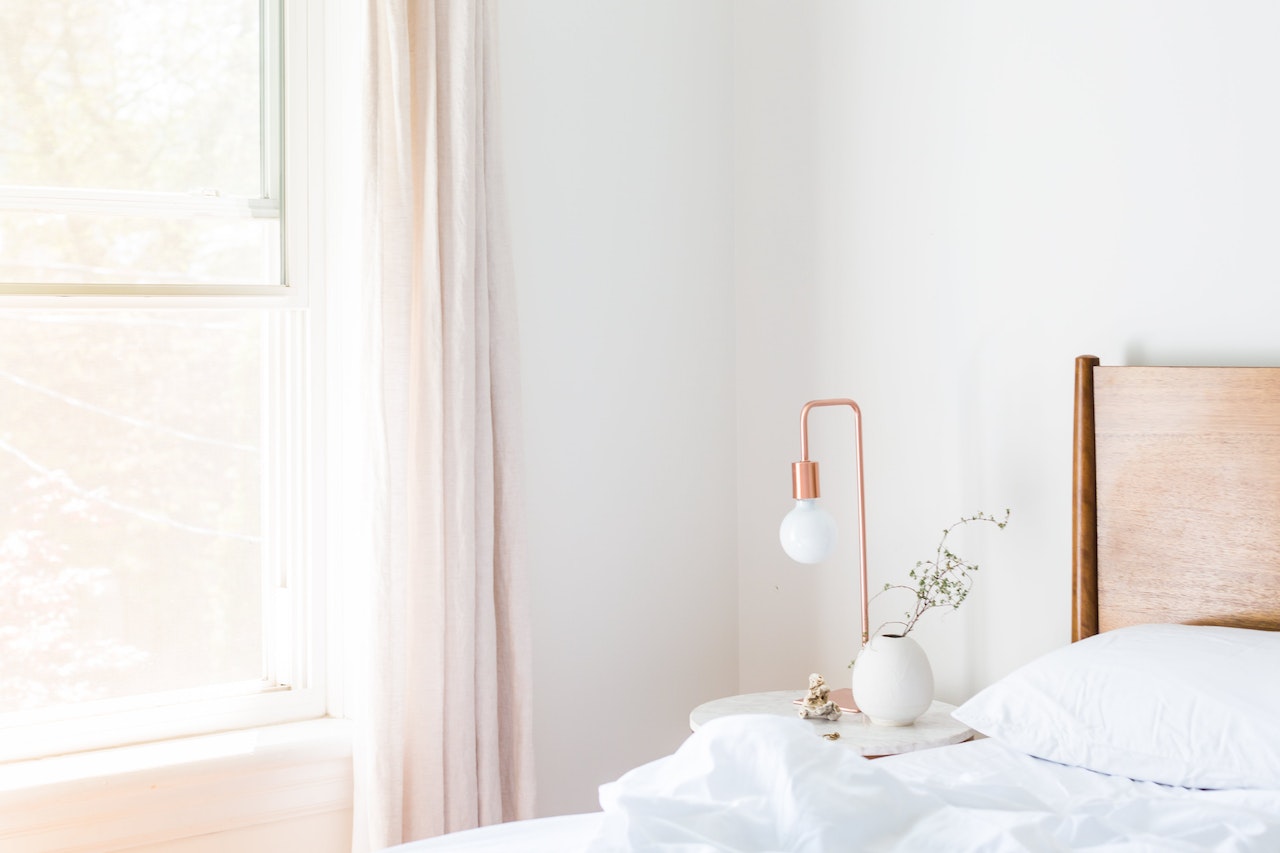
To get the most health benefits out of their sleep routine, it’s recommended that adults achieve between seven and nine hours of high-quality sleep every night. As you may already know, good sleep is good for your health and will make you feel alert and well-rested the next day.
However, getting a good night’s rest is easier said than done. There may be several things getting in the way of your nightly shut-eye. Your bedroom may not be properly set up to promote better sleep, or certain other factors in your lifestyle may be interfering with your ability to fall and stay asleep, from work stress to personal anxieties.
Although you might not be able to control everything that keeps you up at night, having a solid bedtime routine will increase your chances of falling asleep faster and getting enough deep and restful sleep.
Certain changes to your lifestyle, pre-bedtime habits, and current sleep environment before bedtime can make a huge difference in preparing your mind and body for sleep and improving your overall sleep quality. Below are seven of these improvements that you can make to your own bedtime routine:
Wash Up and Put On Proper Sleepwear
An hour or two before going to bed, head to your bathroom for a warm shower or bath. It will help you relax and lower your body temperature, thus making you feel sleepier. It can also feel especially refreshing to wash off all the day’s stress and dirt, which will relax you better.
You should also buy women sleepwear online to wear to bed. High-quality sleepwear garments that are made from soft and breathable material will help regulate your temperature throughout the night and guarantee maximum comfort as you sleep. Get a sleepwear set that isn’t too tight and lets you move freely while you’re asleep.
Sleep and Wake Up at a Regular Time
Sticking to a sleep schedule may be challenging at first, but it’s better to establish regular times for falling asleep each night so that the amount of rest you get every night isn’t erratic.
It’s nice to try getting out of bed at the same time every day, even on weekends when it’s very tempting to sleep in. Being consistent with your schedule will reinforce your body’s natural sleep-wake cycle, which will be healthier for you in the long run.
Opt for a Light Meal before Sleeping
A grumbling tummy can make it tricky to fall asleep. However, you need to avoid going to bed stuffed. Don’t eat heavy or large meals within a couple of hours before your bedtime, as doing so can create discomfort that might keep you up.
If we get hungry a few hours before our bedtime, we could opt for light and healthy options like oatmeal, yogurt, or nuts. These can satisfy our late-night cravings without making us feel too full to sleep properly.

Avoid Consuming Caffeine and Alcohol
As a stimulant, caffeine can make you feel alert and thus make it difficult for you to fall asleep. The effects of caffeine peak about 30 minutes after one consumes a caffeinated beverage like coffee or soda, but substantial caffeine consumption can have noticeable effects for up to seven hours. That being said, it’s best to avoid drinking it late in the afternoon and evening.
In a similar vein, evening nightcaps can keep you up rather than help you sleep. Alcohol is a depressant that can induce drowsiness while drinking, but this effect can fade quickly.
Moreover, drinking alcohol can lower your body’s levels of melatonin, or the sleep hormone. As a result, alcohol consumption can keep you from having a deep and restful sleep. It’s better to avoid drinking so soon before bed if you want to improve your sleep.
Create a Relaxing Environment for Yourself
Another thing you should do if you want to have an easier time falling asleep is to make sure your room is an ideal environment for rest. Make sure it’s cool, dark, and quiet inside. Limit your exposure to bright light, as this can make it challenging to fall asleep since your body is conditioned to wake up when it’s bright.
Turn off or dim the lights in your room when it’s close to your bedtime, and consider putting up blackout curtains to block lights from outside.
Try to keep your room’s temperature between 15 and 19 degrees Celsius, as this is a comfortable temperature to fall asleep to. And to avoid being disturbed by outside noise, consider using earplugs.
Reduce Your Screen Time
The screens from TVs, smartphones, tablets, and laptops all emit blue light that can keep you awake for longer, as it suppresses the production of melatonin in your body. Knowing that it’s best to reduce your screen time to 30 minutes maximum if you don’t want any more trouble hitting the hay.
It’s also a good idea to keep your gadgets on silent mode or to turn them off completely. This way, your sleep won’t be disrupted when you receive notifications in the middle of the night.

Manage Stress and Anxiety That Gets in the Way of Rest
Adding stress management activities to your bedtime routine can help you keep your mind from wandering or worrying. Try to resolve your concerns by writing down tasks or whatever worries are on your mind, then setting them aside for the next day.
I am a huge fan of journaling!
Journaling before bed is also a good practice to incorporate into your bedtime routine. Use it to address any thoughts and emotions that you may have been putting on hold all day. Even journaling for just 10 minutes or less can do a lot to quell anxious thoughts and allow you to feel more relaxed before bedtime.
Final Thoughts
Overall, a better bedtime routine will allow you to unwind and pave the way for deep and restorative sleep. Try the following improvements to your bedtime routine for more restful nights and more energetic days.







